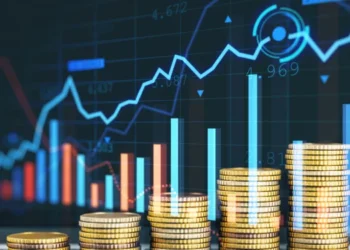Foreign investors have further reduced their participation in the local equities market (Ghana Stock Exchange) amid the global shift toward tighter monetary policy stances to contain inflationary pressures.
Per the Ghana Stock Exchange (GSE) report to fund managers, cumulatively, activities of foreign investors which accounted for 61 percent of equity market trades as of the end of May 2022, declined by 3 percentage points from 74 percent in April 2022, to 71 percent for May in 2021.
The alarming decline can be traced back to the beginning of the year since foreign investors contributed 87 percent of equity market trades in January 2022.
According to the report, the decline in foreign investment in local equities has largely led to a strengthening of the U.S. dollar and rising long-term bond yields, inducing the widened sovereign bond spreads, capital flow reversals and currency pressures.
According to the Ghana Stock Exchange report, the shift in market participation in May resulted in the local bourse recording an all-time-high for a month, as shares worth GHC607.31million were traded.
So far in the second quarter, Foreign investors accounted for GHC1.24billion of the trades, while local investors engaged in trades valued at GHC787.94million. The data further revealed that pension funds contributed to 4 percent of equity trades cumulatively as of May 2022, compared to 7 percent for the same period in 2021.
Data from the Central Securities Depository (CSD) indicated that foreign investors hold approximately GHC14.95billion of the GSE’s GHC62.28billion market capitalisation; a decline from GHC16.71billion in April 2022.
Fed Rate Hike
The US central bank– the Federal Reserve in recent times raised its benchmark short-term rate by 0.75 percentage points, the highest increase since 1994, and signalled that more rate hikes will come.
This has rippling effects on global investments, since as rates rise in the United States safer American government and corporate bonds start looking more attractive to global investors.
In effect, investors pull their funds out of the emerging market and developing economies. Those shifts drive up the U.S. dollar and push down currencies in the developing world and its capital market.
Meanwhile, the strengthening of the U.S. dollar and rising long-term bond yields have led to widened sovereign bond spreads, capital flow reversals and currency pressures, especially for Emerging Market and Developing Economies with weaker fundamentals and fewer buffers.
The cascading effect can be damaging to the economy, as it slows growth, wipes out jobs and squeezes business borrowers. This will force the indebted government to spend more on interest payments, amid increasing yields.
On the reverse, in the local bond market– the Ghana Fixed Income Market (GFIM), foreign investors have increased their position to GHC31.75billion from a lower position of GHC28.65billion at the end of 2022 first quarter.
The bond market sustained its impressive performance, recording a volume traded of 17.31 billion, valued at GHC17.11billion, which represents 27.50 percent and 20.81 percent respectively, more than the trades in the same period last year.
READ ALSO: NEDS to Generate $25 Billion by 2029- Mr. Herbert Krapa






















